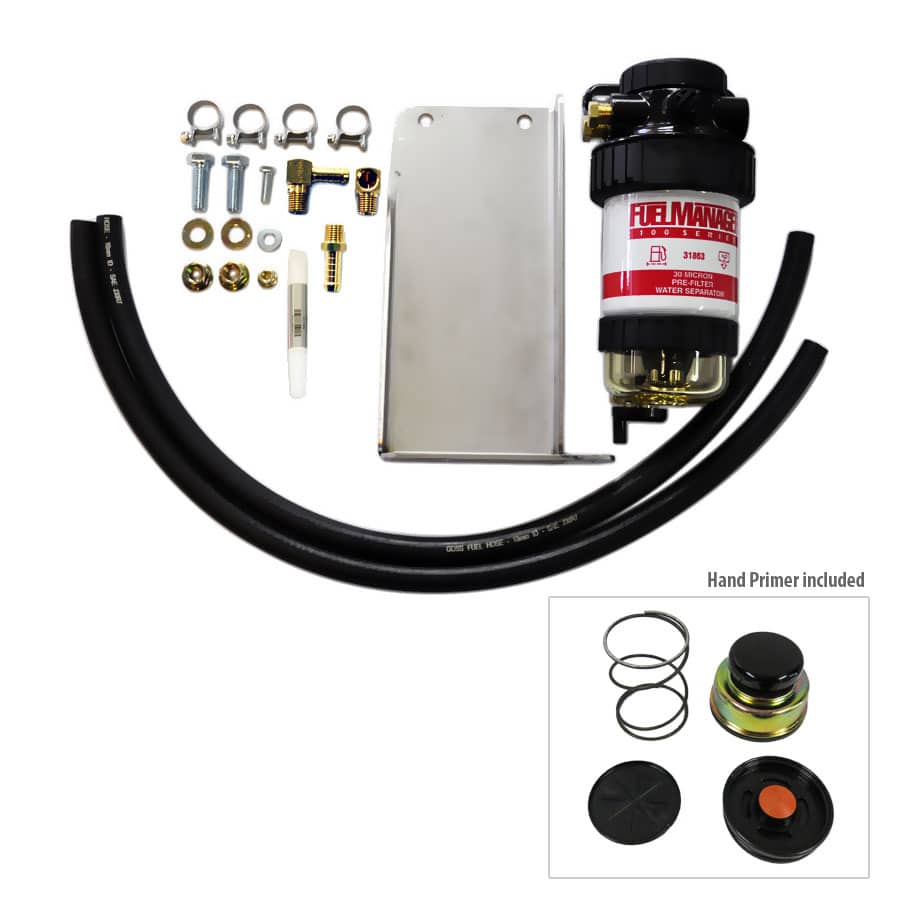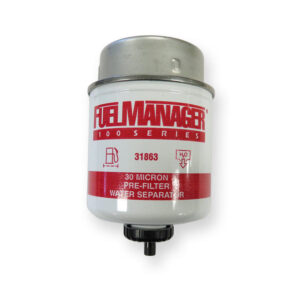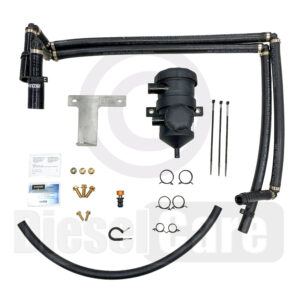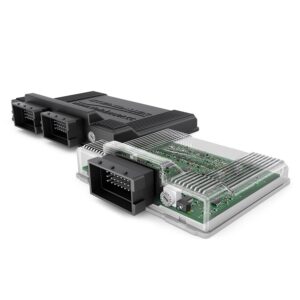This Primary Fuel Manager Fuel Filter Kit is suitable for a: Holden Colorado / Isuzu D-max 3.0L – 2007 to 2012 Models – Hand Primer Included
Year Model: 2007 – 2012
Primary filters, sometimes called a pre filter are plumbed before the factory filter. Fuel passes through this relatively coarse filter first before continuing on to the vehicle’s factory installed filter, then to the high pressure pump. The filter media in a Diesel Care Fuel Manager primary fuel filter is rated at 30 micron.
Diesel Care Fuel Filter Kits offer Premium Protection for your diesel fuel Injection system. The heart of the diesel engine is the fuel injection system. Water, microbial growth (algae) or fine particles of dirt can cause damage to the pump and injectors. Worn or malfunctioning injectors can even lead to engine damage or failure. The most effective way to safeguard against problems is to install an additional fuel filter either before or after the factory filter. Filtering fuel twice greatly reduces the chance of contamination reaching the injection system and can save a whole lot of headaches.
PRIMARY (PRE) KIT FEATURES
- The 30 micron Filter effectively removes larger particulate matter
- Effectively removes water from fuel
- Prolongs the service life of the factory filter cartridge
- Expensive repairs are prevented
- Protects the fuel injection system
- Ensures cleanliness of critical engine components
- Helps maintain engine performance and efficiency
MAINTENANCE The Fuel Manager Primary (Pre) Fuel Filter has a removable filter cartridge element with a membrane that collects contaminants in diesel fuel. This element should be replaced periodically. The recommended frequency of change is every 20,000km or at the same time as you would your factory filter. The exception to this rule would be if you encountered contaminated fuel, in which case you should change the filters early.
The filter bowl should be visually checked for water and drained as required on a regular basis. Neglecting to drain water accumulation in the bowl may result in water entering the fuel injection system. We recommend visually checking the bowl every 5,000km or earlier.



